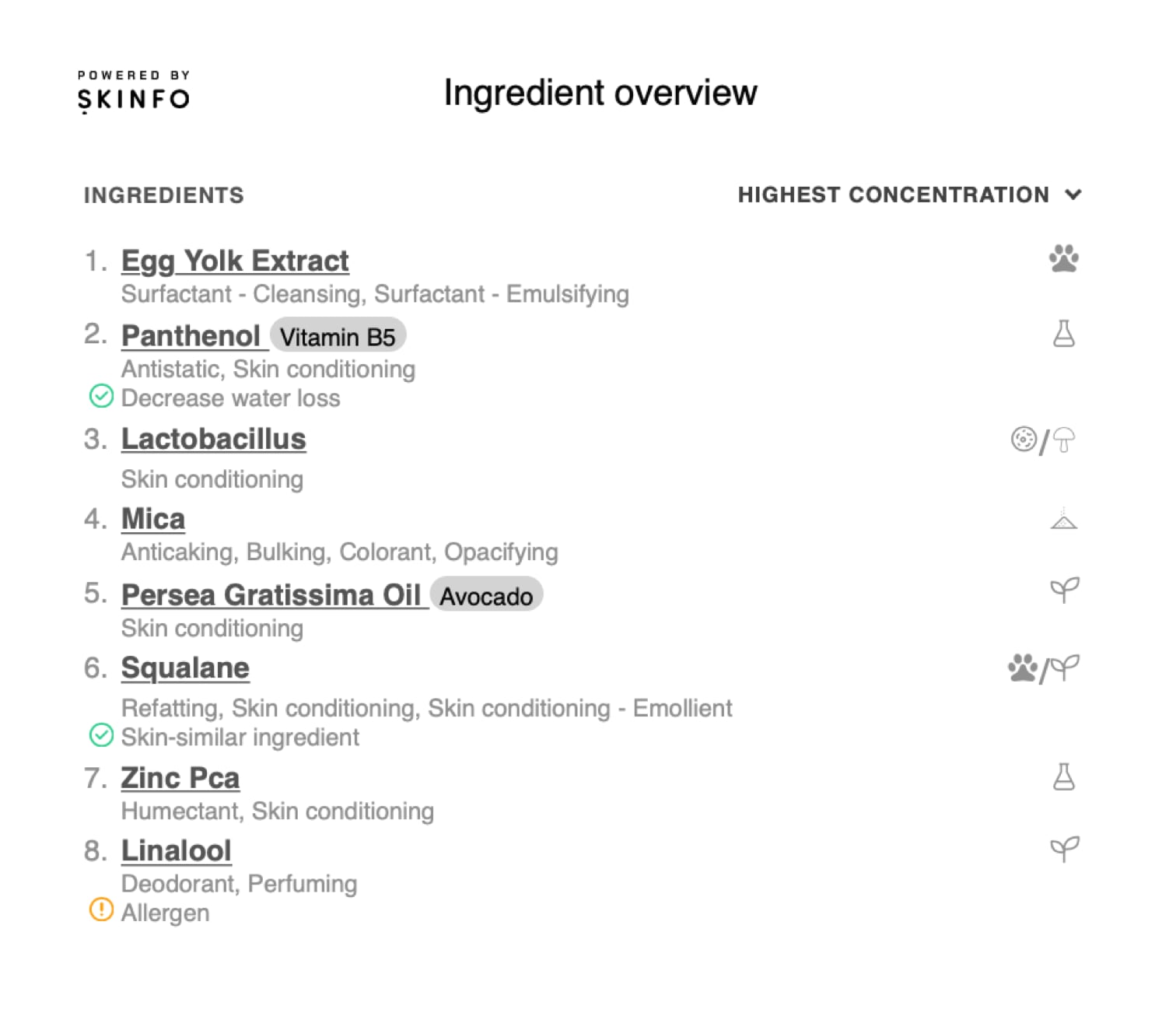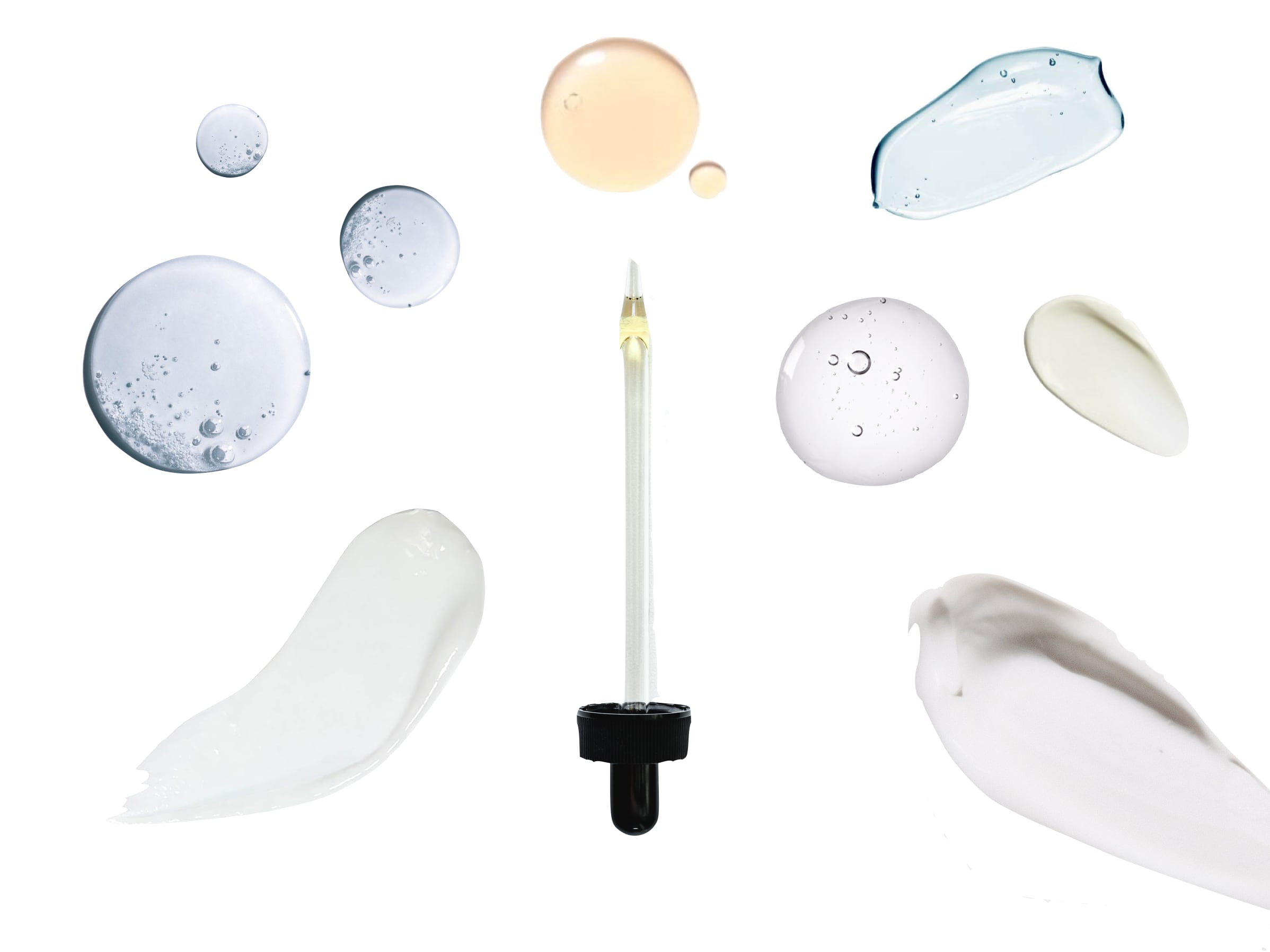Founded in 2019, Skinfo’s online widget displayed cosmetic ingredient lists in a simple and transparent way, offering a visual ‘overview’ with easy-to-understand icons, vitamin highlights, ingredient functions and allergen concerns. All information displayed via the tool was based on scientific evidence from various sources, including the European Commission (EC), European Chemicals Agency (ECHA) and the Organisation for Economic Co-operation and Development (OECD), among others, and it had been designed for use on e-commerce platforms and direct brand listings on Shopify and own-brand sites.
Skinfo was already used by several online retailers worldwide, including Lloyds Pharmacy in Sweden and a range of D2C brands operating on Shopify, displaying ingredient information for more than 180 skin care and cosmetic brands on these platforms. Today, the tool was used by shoppers worldwide 10,000+ times every day and had been used four million times since its launch by around 350,000 customers.
Making beauty ingredients ‘transparent and understandable’
Speaking to CosmeticsDesign-Europe, Lena Skiba, CEO and co-founder of Skinfo, said there had been “really good traction” worldwide from businesses and consumers using the tool, likely because it helped consumers navigate formulations and enabled online retailers to offer a better service to shoppers.
“We make the classic ingredient list transparent and understandable for every consumer – that’s the short version of it,” Skiba said.

“Since many shoppers often feel it’s too difficult to understand the classic [ingredient] list, we have simply explained every ingredient based on scientific information and made the language more digestible,” she said.
“Brands and consumers love us, and we are aiming to make conscious choices easier and more honest.”
‘We come in like Trustpilot but for ingredient transparency instead’
Importantly, Skiba said Skinfo offered an “objective” dive into ingredient lists because all information provided was rooted in published science. “We come in like Trustpilot but for ingredient transparency instead.”
For smaller brands, the Skinfo tool provided a simple way to boost consumer trust in their products, she said, and for larger brands it removed any bottlenecks or waiting times when consumers had questions about a product or its ingredients. The tool also kept consumers on a brand or e-commerce page versus opening a new tab to search an ingredient or product information, she said.
“I think this is a great way of being more open towards explaining things that [previously] only chemists knew a lot about. That’s a big thing,” she said.
Moving forward, she said it was now about communicating to brands that such a service existed.
Growth ambition? ‘Obviously Sephora would be a dream’

Asked what the five-year goal was for Skinfo, Skiba said: “I think our dream, obviously, would be to get Sephora and Ulta on board, and the big ones in Europe, Douglas for example. We just signed an online pharmacy chain in Sweden, the biggest one (…) but obviously Sephora would be a dream.
“…We’re really looking forward to being some kind of standard in industry soon.”
In the meantime, she said Skinfo was focused on serving smaller brands working on the Shopify platform, with the app designed to be installed and ready within around ten minutes. It would also continue to support larger brands via its Application Programme Interface (API) offering that was very “easy to integrate” and only required the ingredient list information.




